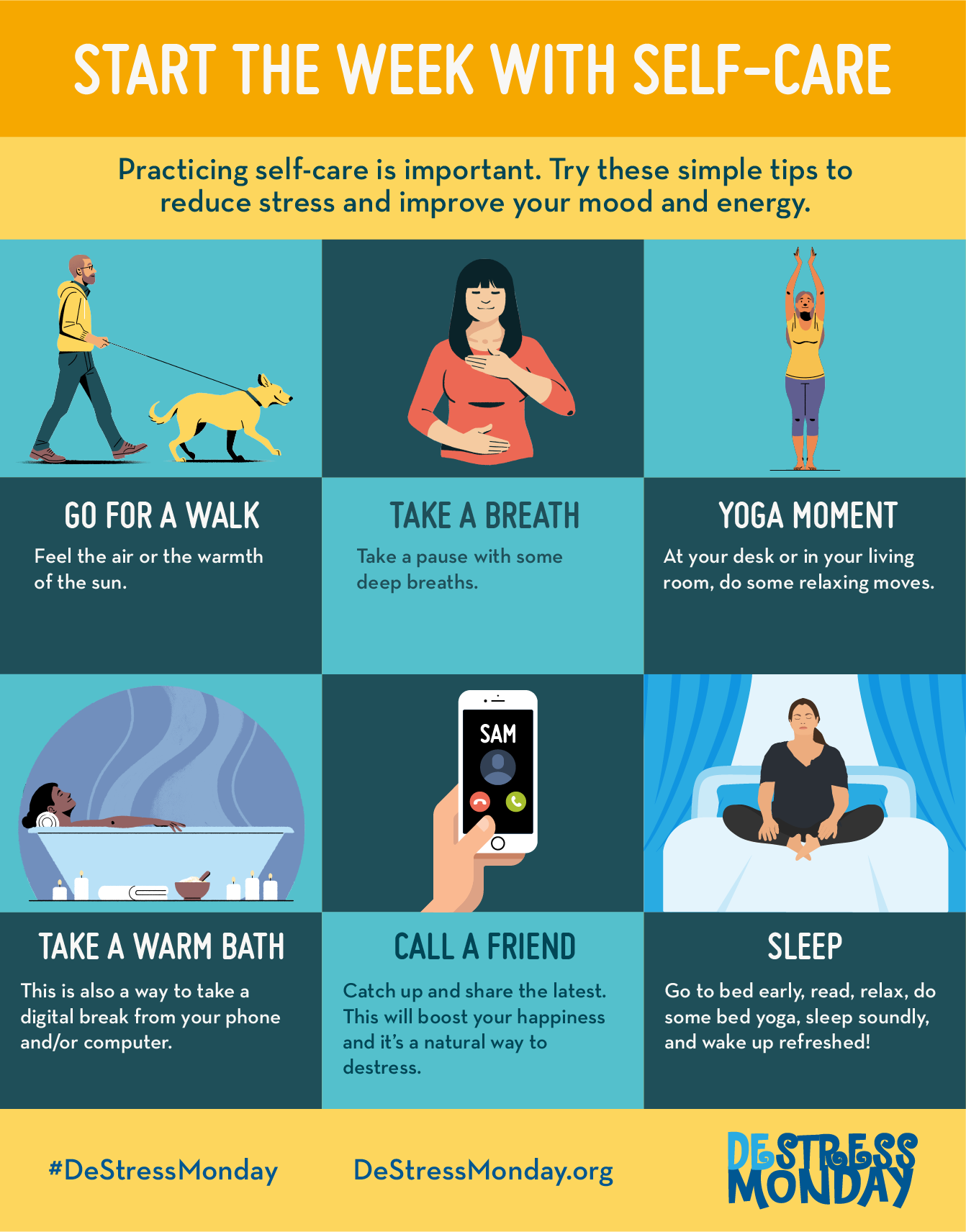Anxiety is your body’s natural reaction to work-related stress. And work-related stress can come from many sources. Maybe you’re overwhelmed with the number of tasks on your to-do list. Or maybe you’re getting unclear instructions or unrealistic expectations from your boss. Maybe you’re finding that you don’t have a welcoming environment to turn to at work. No matter what the source is, anxiety caused by work-related stress can have negative effects on both your mental and physical health.
Here are some tips on how to deal with anxiety in the workplace.
Acknowledge your feelings
The first thing to realize is that work-related stress and mental health issues are very common, and you are not alone. It’s important to recognize your feelings of anxiety or stress as valid. By acknowledging your feelings, you’re taking the first step to dealing with them, rather than suppressing them and letting issues get worse.
Identify what is stressing you out
As we mentioned, work-related stress can come from a variety of reasons. It’s helpful to identify what exactly is causing your anxiety so that you can deal with the issues directly. Stress comes in many ways, but here are some common reasons you may be feeling this way at work:
- Taking on increased responsibility: Have you recently found yourself with a heavier workload or more responsibility than you had before? Maybe you have taken on a new role or are helping someone else with theirs. This can be stressful because it’s something you’re not used to, and it takes time to adapt.
- Unrealistic expectations: If people have expectations of you that you know you are going to struggle to accomplish, not being able to meet these expectations can be a root cause of your anxiety.
- Lack of control over work: Lack of control can be stressful. If you don’t feel like you have authority over your own work, it creates stress and makes you feel that you lack the power to change this.
- Poor organization: Whether it be that there’s poor organization surrounding the work you’re doing or the organization up top leads to confusing employee communications, disorganization in the workplace can make you feel like you are lost.
- Job insecurity: In today’s job landscape, it can feel very competitive. If your organization is going through personnel changes, you may fear losing your job, which is a very stressful situation.
- Organizational change: Is your organization going through major changes? Not everyone handles change well, especially if these changes aren’t managed properly by those implementing them.
Establish healthy work-life boundaries
As we continue to navigate through this new era, the lines between work and life are increasingly blurred. It can be really easy to find yourself unable to separate work and home, especially if your work is at your home. You may feel like you need to be online all the time or stay in the know if you aren’t in the office, but this is unhealthy. It’s crucial to establish boundaries because it helps you leave your stress about work, at work. With remote work, in particular, an important thing to do is to remember to unplug from work and not let it creep into your personal time.
Take time to relax and recharge

In accordance with the last point, it’s important to have time to de-stress. Taking a walk, meditating, reading a good book or even just sitting in the sun outside for a few minutes – all of these are great ways to relax your mind after a long day at work. If you feel relaxed and refreshed, it will put you in a better mindset to deal with any stress that may come up.
Reach out to others
Having a healthy support system is extremely helpful when dealing with anxiety from work-related stress. Find someone that you feel comfortable sharing your concerns with, whether it be a co-worker, your manager, a mentor, or even friends and family. Sometimes, all you need is someone to listen and empathize with you when you are feeling stressed.
That being said, if you are comfortable doing so, reaching out to your manager is an excellent option. It can be scary to reach out, but it can be a positive experience. Not only can they talk through issues with you, but they should also ultimately be looking out for your wellbeing, especially if it is affected by the work. Hopefully, they can help alleviate some of your stress by, for example, lessening your workload, clarifying their expectations of you, giving you time off, or assigning you to different projects.
Don’t be afraid to take a break or to leave your job
If there’s one thing you should remember when thinking about how to deal with anxiety at work, it is that you should never feel guilty about taking a break from work. Taking time off whether it be a full vacation or just a mental health day, can be extremely helpful in alleviating some of your stress. Stepping away from your work can also help you clear your head, allow you to think in a different way, and better approach problem-solving at work.
Moreover, it can be scary to leave a job, but sometimes it is for the better. If you are finding your work is bringing more negativity into your life than positivity, it may be a good time to re-evaluate if this role is the right fit. Of course, there are a lot of things to consider when making this decision, but keep in mind that your health – mental or physical – should ultimately come first.
Consider creating your own free personal annual plan in order to map out your career goals!
Seek professional support and/or external resources
Finally, if you find that your anxiety is pertinent, it’s best to seek professional help. Anxiety can be difficult to manage without help, and you’re not alone. A professional psychologist or therapist can help you better deal with your anxiety and understand your feelings. Further, your workplace may have access to a number of mental health resources as well, whether it be support groups, counselling, or employee benefits.
